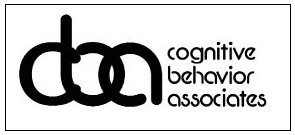Each new client begins with an evaluation.
This evaluation will allow the clinician to then share their formulation of the problem with the patient, as well as share with the patient a fairly detailed overview of the treatment strategies that will be used. This evaluation consists of an interview and the administration of some self-report paper and pencil measures.
The session is very "consumer oriented" in that there is time set aside for the patient to ask questions of the clinician about the details of the treatment and about their background. The next step in the treatment process is the development of a treatment plan with the patient. This treatment plan is a guide for both the clinician and the patient that includes the goals of treatment, empirical measures and interventions. The collaborative development of this plan and the use of measures ensure that there is alignment between what the clinician will provide and what the patient expects.
Clients are then engaged in the process which many involve reading materials, writing assignments and behavioral experiments. Each session begins with the setting of an agenda to help keep both the patient and clinician "on track" and help assure an organized and comprehensive treatment.Clinicians (who are the experts on CBT) contribute items to the agenda having to do with the programmatic aspects of CBT and patients (who are the experts on themselves) contribute items based on what is happening in their lives and what they know will or will not be helpful. This approach increases the collaborative nature of our treatments and ensures that both the clinician and the patient are on the same page.
Periodic assessments are then conducted to give the clinician and the patient an opportunity to see what is going on and to refine the treatment. It is out philosophy that it "should not be a mystery" whether the treatment is working or not. There are ways to measure progress and we collaborate to design those measures and use them as we go forward. Cognitive Behavior Therapy moves from a continuous to a discontinuous approach, meaning that clients begin weekly aid then move to bi-weekly, monthly or less frequently as progress is made. Many patients continue to meet with us over a long term (but infrequently) to prevent relapse and to maintain their gains. The patient and the therapist together decide how that "consultant" role will be structured for the future.
Cognitive Behavior Associates offers comprehensive cognitive assessments - powered by Cambridge Brain Sciences- a leading provider of cognitive assessment tools for clinicians, featuring 12 quick, fun and scientifically- validated cognitive tasks that produce objective measures across multiple cognitive domains.
The core areas of cognition tested-memory, attention, reasoning, and verbal ability- are key to your quality of life.
WHY IS THIS IMPORTANT?
Having a scientifically- validated objective measure of your cognitive function is a fundamental input to understanding which brain functions and regions may require the most focus. With this information in hand, we then tailor our treatment plans to each individual’s needs-and re- assess along the way to ensure we are seeing progress in key focus areas-helping produce the best possible patient outcome.
Here is a link to take a sample test:
https://health.cambridgebrainsciences.com/en/site/cognitive_behavior_associates_demo/


